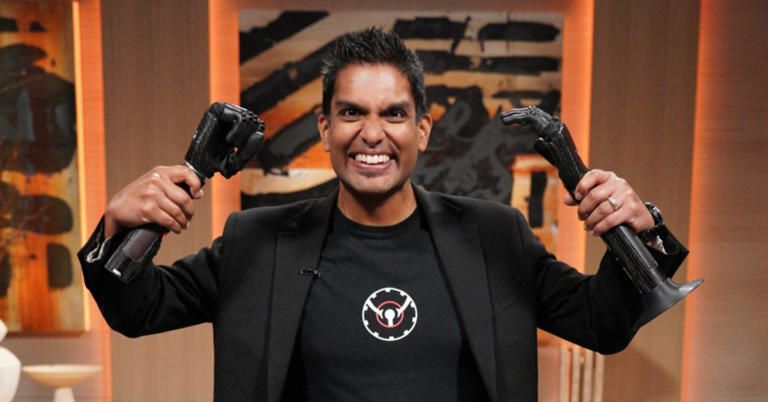Akhtar’s journey from witnessing poverty and disability in Pakistan to developing bionic prosthetic hands is truly inspiring. His encounter with a young amputee using a tree branch as a crutch motivated him to pursue neuroengineering and ultimately led to the creation of the Ability Hand.
The Ability Hand, manufactured by Psyonic, offers groundbreaking features such as muscle-controlled movement, water resistance, and USB-C rechargeability. Akhtar’s innovation has not only revolutionized prosthetic technology but has also garnered attention from prestigious organizations like Meta and NASA, which have utilized the hand in robotics research.
During his appearance on ABC’s “Shark Tank,” Akhtar sought a $1 million investment to scale up production capacity for Psyonic. With each bionic hand costing $15,000 to manufacture, scaling production presents a significant challenge. The investment offer he received on the show underscores the potential of his invention and the impact it could have on the lives of amputees worldwide.
A confused Mark Cuban
Psyonic’s crowdfunding success and its innovative approach to raising capital surprised some investors, including Mark Cuban, during Akhtar’s pitch on “Shark Tank.” Despite the company’s ability to raise several million dollars through crowdfunding on platforms like StartEngine, Cuban questioned why traditional venture capital and private equity firms hadn’t shown more interest in Psyonic’s groundbreaking technology.
Akhtar explained that Psyonic’s unique position at the intersection of healthcare and robotics may have posed challenges for equity investors who typically prefer companies focused on one industry. He mentioned encountering skepticism from investors who couldn’t fully grasp Psyonic’s multifaceted nature.
However, Cuban remained skeptical, suggesting that there might be other reasons behind the lack of investment interest from traditional sources. Despite acknowledging Psyonic’s impressive achievements, Cuban ultimately chose not to invest in the company.
Snagging a 7-figure offer
Akhtar’s pitch on “Shark Tank” attracted the interest of Kevin O’Leary, Lori Greiner, and Daymond John after Mark Cuban opted out. O’Leary inquired about Psyonic’s financials, to which Akhtar revealed lifetime sales of approximately $2 million, with over $1 million generated in 2022 alone, resulting in a $100,000 profit for the year.
While O’Leary expressed interest, he proposed a counteroffer of $1 million for a 10% equity stake in the company, indicating that he wouldn’t settle for a 2% stake. Akhtar, hesitant to relinquish such a large portion of equity, declined the offer.
Subsequently, O’Leary, Greiner, and John collaborated on a new offer: $1 million for a 6% stake in Psyonic, with each investor receiving a 2% share. To maintain the company’s valuation at $50 million, the shares would consist of both common and advisory shares.
After considering the terms, Akhtar accepted the offer, signaling a successful deal on “Shark Tank.”
